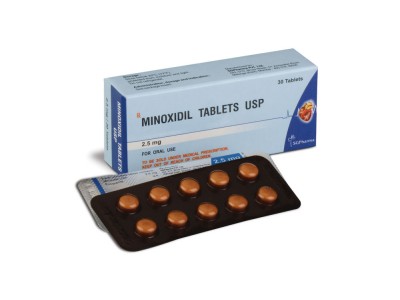Minoxidil is primarily known and used as a topical solution for treating hair loss, particularly in male and female pattern baldness. It is less commonly used in tablet form. However, side effects of minoxidil tablets, if taken orally, can occur and may include:
Fluid Retention: Minoxidil tablets can cause fluid retention, leading to swelling in the hands, ankles, or feet.
Heart-related Side Effects: Some individuals may experience rapid heartbeat (tachycardia), chest pain, or other cardiovascular effects. These are more common with oral minoxidil due to its systemic absorption.
Dizziness or Lightheadedness: Changes in blood pressure can sometimes cause dizziness or lightheadedness.
Weight Gain: Fluid retention can contribute to weight gain in some individuals.
Hair Growth in Unwanted Areas: Oral minoxidil may occasionally cause hair growth in areas other than the scalp, such as the face (hirsutism).
Digestive Issues: Nausea, vomiting, or gastrointestinal discomfort may occur in some users.
Fatigue or Weakness: Some people may experience feelings of fatigue or weakness.
It's important to note that these side effects are typically more common and pronounced with oral minoxidil compared to the topical form, which is applied directly to the scalp. Oral minoxidil is not typically recommended for female hair loss due to its potential for serious side effects, especially cardiovascular effects.
If you are considering minoxidil for hair loss treatment, particularly in tablet form, it is crucial to discuss the risks and benefits with a healthcare provider. They can help determine the most appropriate treatment for your specific situation and monitor for any potential side effects. Topical minoxidil is generally safer and more commonly used for female hair loss, with minimal systemic absorption and fewer side effects compared to oral formulations.

